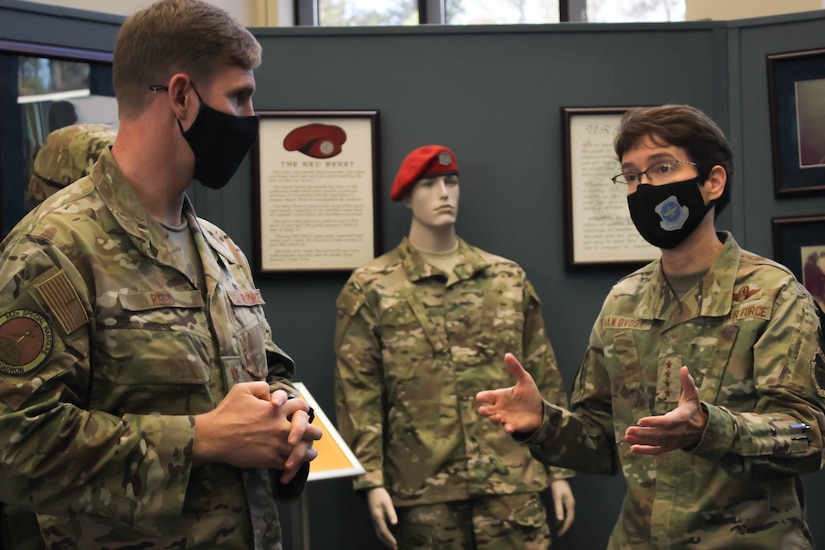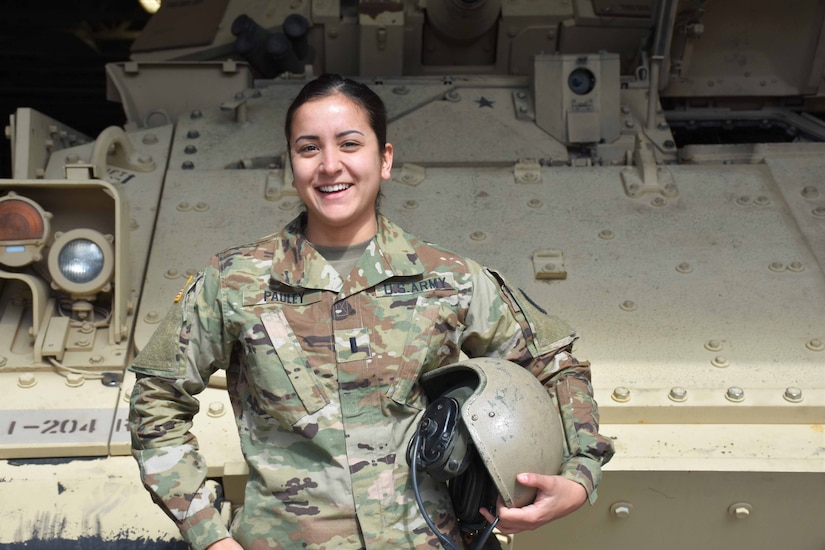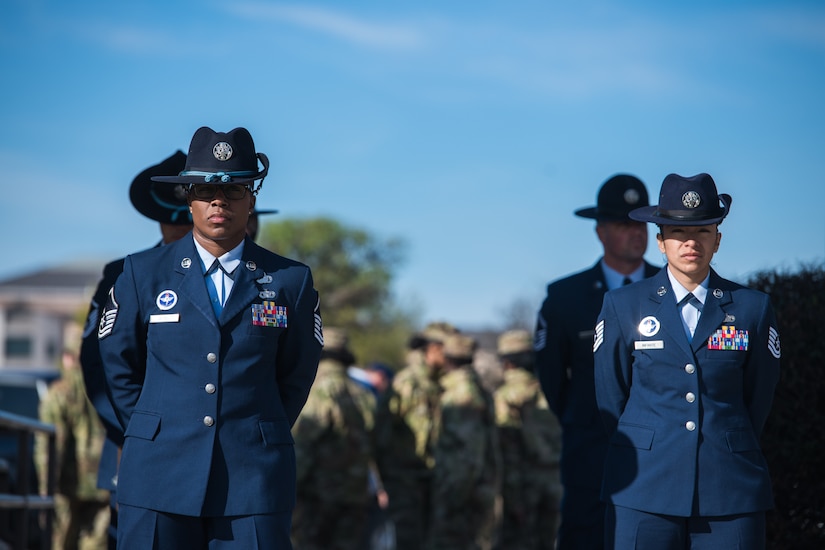March 8, 2021 | , DOD News
No nation can afford to ignore half its population.
That's the premise of the United Nations Security Council resolution 1325 on the Women Peace and Security program. It is good to remember this on International Women's Day.

In 2017, Congress passed the Women Peace and Security Act that called for the United States "to be a global leader in promoting meaningful participation of women in conflict prevention, management and resolution."
This premise is at the heart of the U.S. Strategy on Women Peace and Security. "Governments that fail to treat women equally do not allow their societies to reach their full potential [while] societies that empower women to participate fully in civic and economic life are more prosperous," it says in the strategy.
While Women Peace and Security is a government-wide effort, the DOD has an important role. The DOD has an overarching program for Women Peace and Security, but it is at the combatant commands where the program is crafted to suit the needs of the United States and partner nations.

U.S. Southern Command has been energetic in promoting the program and is already making headway in this relatively new portion of strategy.
Air Force Lt. Col. Duilia Mora Turner is the chief of the Women Peace and Security program at the command, which covers Central America, South America and most of the nations in the Caribbean Sea. Southcom commander Navy Adm. Craig S. Faller was an early proponent of the program and assigned it to his civilian deputy Ambassador Jean E. Manes.
The hemispheric command seems made for the program: Most of the nations are democracies and all have provisions calling for equal rights. Most of the militaries in the region have female service members.
Turner said the command sees the program as a capability. "No commander in the world, and particularly here in the United States, wants to make a decision on only 50% of the information," she said in an interview. "So when we take in consideration that statistically, about 50% of the world population are women, it's paramount that we include that perspective in everything we do."

This perspective must be part of decisions in the countries and in the command. From budgets to resources to exercises to operations to intelligence, commanders should "put on those gender lenses" to ensure that Southcom is not blindsided because it didn't consider gender perspectives, she said.
To an extent, this is a change in military culture. "One of the premises in which we want to expand the program through Southcom is that Women Peace and Security is not something we do, but is the way in which we think," Turner said.
It is not a singular event or activity, but something that "every member of the staff, every component, every security cooperation office, and our partners," must consider as they work together.
How the U.S. military deals with women in the ranks is part of this. "We want to be a role model to our partners, that we are a diverse, inclusive force," the colonel said. "We say proudly when we talk about wanting to secure the United States, (that) no jobs are limited for women."

This is important as there is data that shows when nations have smaller gender gaps, there is less corruption and more trust in government, Turner said.
Turner stresses that the program is not one size fits all partners. Some nations in the Southcom area are farther ahead than others. She mentions that what works in Colombia — a net exporter of security — is different than in Honduras, and that a program crafted for Trinidad and Tobago may not be accepted in Ecuador.
Southcom tailors the program to capitalize on the diverse roles women play in preventing and resolving conflict, countering terrorism and violent extremism as well as building post-conflict peace and stability in the hemisphere.
"I really think Southcom has the ability to be the gold standard when it comes to Women Peace and Security, not as the Southcom enterprise, but because the nations across the region see the benefits," Turner said







No comments:
Post a Comment